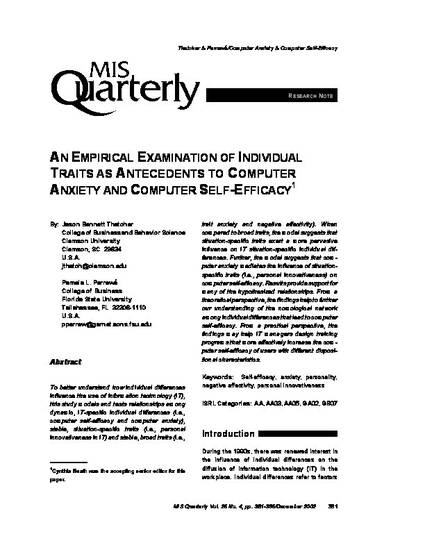
To better understand how individual differences influence the use of information technology (IT), this study models and tests relationships among dynamic, IT-specific individual differences (i.e., computer self-efficacy and computer anxiety), stable, situation-specific traits (i.e., personal innovativeness in IT) and stable, broad traits (i.e., trait anxiety and negative affectivity). When compared to broad traits, the model suggests that situation-specific traits exert a more pervasive influence on IT situation-specific individual differences. Further, the model suggests that computer anxiety mediates the influence of situation-specific traits (i.e., personal innovativeness) on computer self-efficacy. Results provide support for many of the hypothesized relationships. From a theoretical perspective, the findings help to further our understanding of the nomological network among individual differences that lead to computer self-efficacy. From a practical perspective, the findings may help IT managers design training programs that more effectively increase the computer self-efficacy of users with different dispositional characteristics.
Available at: http://works.bepress.com/jason_thatcher/30/
